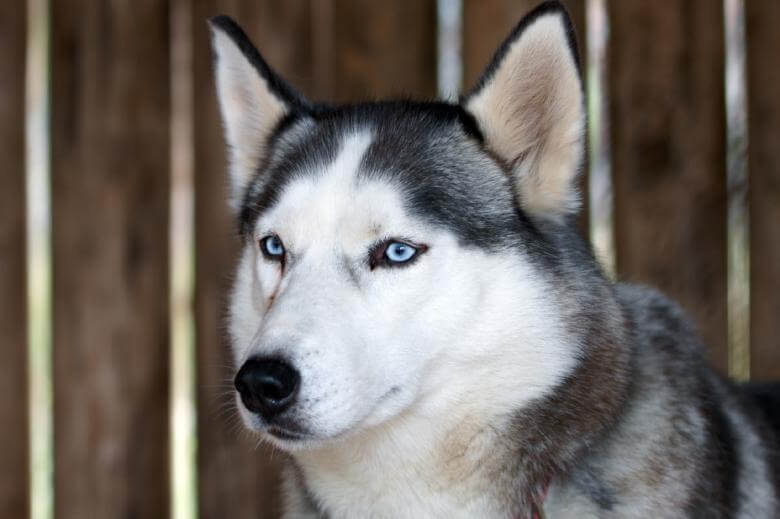What Should I Feed My Husky?
Concerning maintaining the health of your husky and energetic, understanding what should I feed my Husky? Is crucial. Huskies are active and strong dogs whose diet needs to match their energy levels and specific nutritional requirements. A balanced diet supports their well-being, maintains a healthy weight, and prevents common health issues.
The key components of this blog will be to examine what I should feed my Husky. We’ll explore the essential nutrients your Husky needs, including proteins, fats, carbohydrates, vitamins, and minerals. Additionally, we will provide practical feeding guidelines to help you choose the right food, whether commercial dog food, home-cooked meals, or a raw diet. We’ll also cover special considerations for Huskies with specific health needs or dietary restrictions.
By the end of this blog, you’ll clearly understand how to properly feed your Husky and make informed decisions about their diet. With the right information, you can ensure your Husky remains healthy, happy, and thriving.
High-Quality Dog Food Brands for Huskies
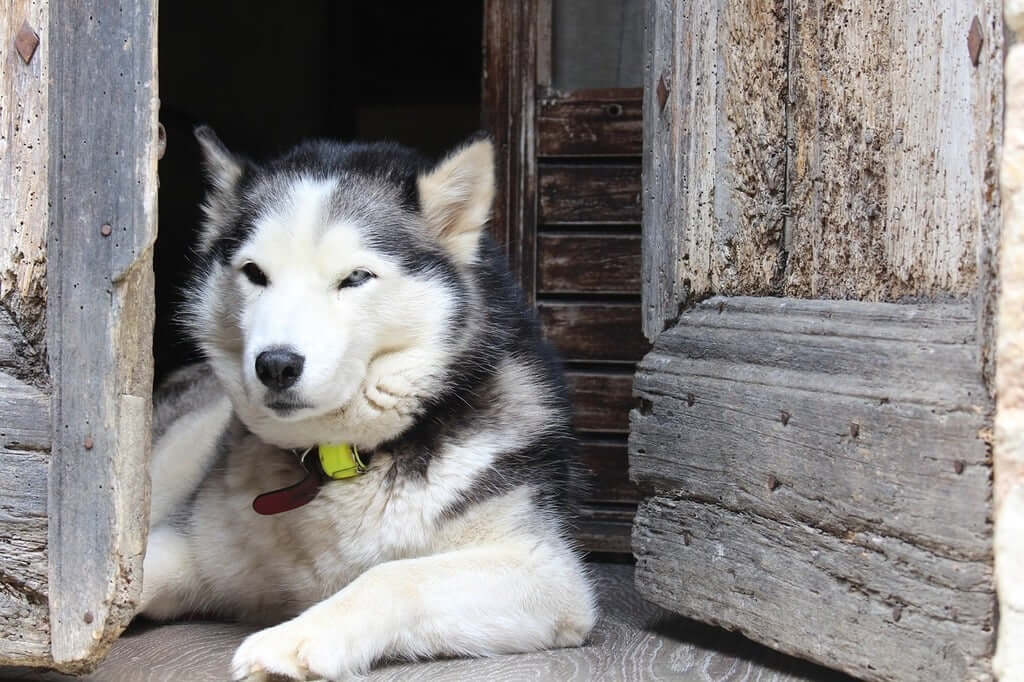
Selecting the appropriate dog food is crucial for maintaining your Husky’s health and energy levels. Here are some high-quality dog food brands recommended for Huskies:
- Blue Buffalo: Known for its natural ingredients and balanced nutrition, Blue Buffalo offers high-protein options free from artificial additives. Their foods include deboned chicken, brown rice, and sweet potatoes.
- Wellness Core: This brand provides grain-free options with high protein content. Wellness Core uses meat meals, Fish, and nutrient-rich vegetables to support muscle development and overall health.
- Royal Canin: Specifically designed for different breeds and life stages, Royal Canin offers tailored nutrition for Huskies. Their formulas include high-quality proteins and essential fatty acids to promote healthy skin and coat.
- Orijen: Orijen is known for its biologically appropriate food, which includes fresh, free-run chicken, wild-caught Fish, and wholesome fruits and vegetables. Its recipes are designed to mirror a natural diet.
Compare Ingredients and Benefits
When comparing these brands, consider the following:
- Proteins: High-quality dog foods like Blue Buffalo and Orijen include real meat as the first ingredient, ensuring a rich source of protein. Wellness Core offers meat meals, which are concentrated protein sources.
- Grains vs. Grain-Free: Brands like Wellness Core and Orijen offer grain-free options, which can benefit Huskies with sensitivities or allergies. Royal Canin includes carefully selected grains that can aid in digestion.
- Additives: Look for foods with minimal artificial additives. High-quality brands typically avoid fillers, preservatives, and artificial colors.
Understanding the Nutritional Needs of Huskies
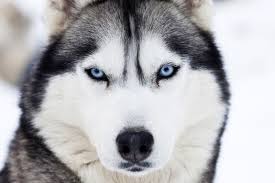
Why Proper Nutrition is Crucial for Huskies
Proper nutrition is fundamental for Huskies because of their unique physical and metabolic characteristics. Huskies are a high-energy breed known for their endurance and strength. Their diet must match their active lifestyle to remain healthy and energetic. A balanced diet supports several critical aspects of their well-being:
- Energy Levels: Huskies require a diet that provides sufficient energy to fuel their active lifestyle. Inadequate nutrition can lead to fatigue and reduced physical performance.
- Health Maintenance: A proper diet helps maintain overall health, including strong immune system function, healthy joints, and a shiny coat. This reduces the risk of health problems such as skin issues, joint pain, and immune system deficiencies.
- Prevention of Health Issues: Proper nutrition helps prevent obesity, a common problem in Huskies due to their tendency to gain weight if overfed or fed low-quality food. Other diet-related issues include digestive problems, allergies, and poor coat health.
Specific Dietary Needs of Huskies
Huskies require a different diet than other dogs other breeds due to their high metabolism and energy demands. Here’s a closer look at what they need:
- High Protein Content: Huskies need a protein-rich diet to support muscle growth and repair. Maintaining muscular mass requires protein, especially given their high activity levels. High-quality animal-based proteins, such as chicken, beef, or Fish, are ideal because they provide all the essential amino acids.
- Balanced Carbohydrates: Carbohydrates are a vital source of energy for Huskies. They help sustain their high activity levels and support overall energy needs. The complex carbohydrates in barley, brown rice, and sweet potatoes are preferable because they provide steady energy and are easier to digest.
- Healthy Fats: Fats are important for a Husky’s skin and coat health and offer a concentrated energy source. Omega-3 and Omega-6 essential fatty acids are good for keeping a glossy coat and healthy skin. Healthy fats can be found in flaxseed and fish oil flaxseed.
- Vitamins and Minerals: These are required for several body processes. Vitamins A, D, E, and K support vision, bone health, and overall cellular processes. Minerals like calcium, phosphorus, and potassium help maintain strong bones, proper muscle function, and electrolyte balance. A well-rounded diet ensures your Husky gets these nutrients in the right amounts.
Common Health Issues Related to Diet
If a Husky’s diet is not properly balanced, several health issues may arise:
- Obesity: Overfeeding or providing low-quality food can lead to weight gain. These factors increase the risk of diabetes, heart disease, and joint problems. Regularly monitoring your Husky’s weight and adjusting their diet as needed can help prevent obesity.
- Digestive Problems: An imbalanced diet or Abrupt alterations in diet can result in digestive problems like diarrhea or constipation. Choosing high-quality food and gradually changing their diet can help prevent these problems.
- Skin Allergies: Some Huskies are prone to food allergies that can cause itchy skin or ear infections. Recognizing and removing allergies from their diet is critical to manage these conditions.
- Joint Health: An improper diet lacking in essential nutrients can lead to joint issues. Huskies are prone to hip dysplasia, and consuming omega fatty acids and other joint-supporting nutrients can help maintain joint health.
Essential Nutrients for Huskies
To meet their dietary needs, Huskies require a balance of several key nutrients:
- Proteins: Tissue construction and repair depend on proteins. Look for high-quality, animal-based protein sources in their food, such as chicken, beef, or Fish, which provide complete proteins with all the necessary amino acids.
- Carbohydrates: Carbohydrates provide the energy Huskies need for their daily activities. Complicated carbohydrates in sweet potatoes and brown rice are preferable as they offer sustained energy and support healthy digestion.
- Fats: A concentrated energy source for is fat the skin and coat to remain healthy. Fatty acids with an omega-3 and omega-6 ratio are very advantageous. Sources of these fats include Fish oil and flaxseed, which help maintain a healthy coat and support overall health.
- Vitamins and Minerals: A balanced diet includes vital minerals and vitamins that assist a range of body processes. Vitamins A, D, E, and K are important for vision, bone health, and immune function. Key minerals like calcium, phosphorus, and potassium support bone strength, muscle function, and overall health.
Ensuring your Husky receives the right balance of these nutrients, you can help it maintain its health, energy, and vitality throughout life.
Choosing Between Dry Food and Wet Food
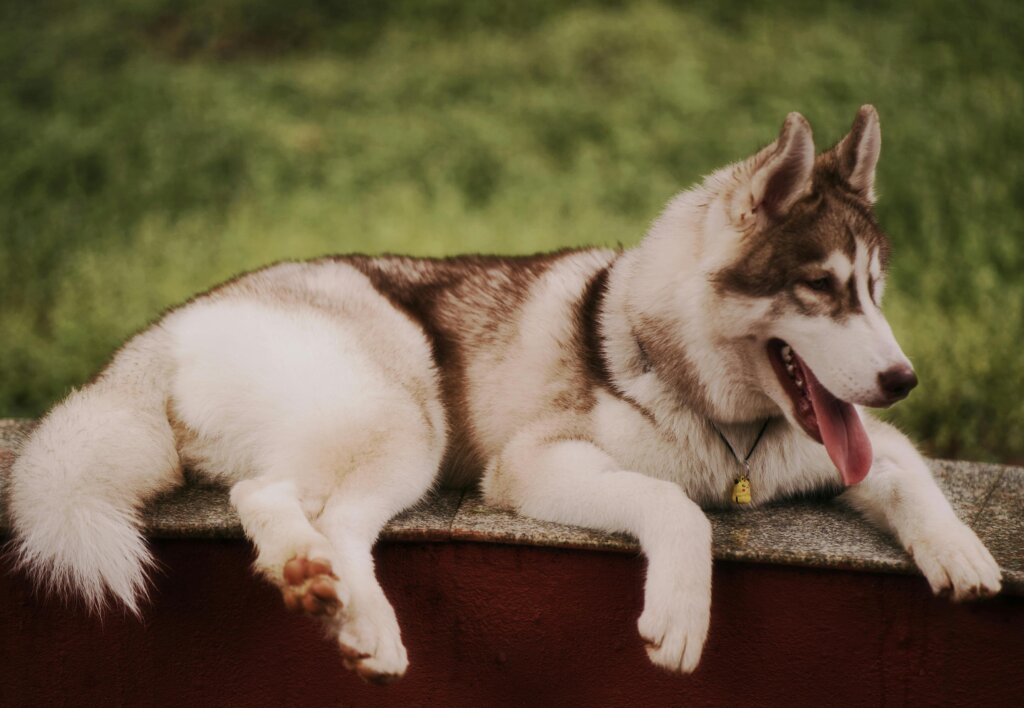
Dry Food (Kibble)
- Advantages:
- Convenience: Easy to store and serve.
- Dental Health: Helps reduce tartar build-up through mechanical cleaning.
- Cost: Generally more affordable than wet food.
- Disadvantages:
- Hydration: Dry food has a lower moisture content, so your Husky may need additional water to stay hydrated.
- Palatability: Some Huskies may find dry food less appealing than wet food.
Wet Food (Canned)
- Advantages:
- Moisture: Higher moisture content helps with hydration.
- Palatability: Often more appealing to picky eaters and easier to digest.
- Disadvantages:
- Cost: Typically more expensive than dry food.
- Storage: Requires refrigeration after opening and can be less convenient.
Home-Cooked Meals for Huskies
Pros:
- Control: You can choose exactly what goes into your Husky’s food, avoiding unwanted additives.
- Customization: Tailor meals to your Husky’s specific dietary needs and preferences.
Cons:
- Time-Consuming: Preparing home-cooked meals can be time-intensive.
- Nutritional Balance: It can be challenging to make sure the meals fulfill your nutritional needs and are balanced Husky’s needs.
Sample Recipes and Guidelines:
- Chicken and Rice: Cook boneless chicken and brown rice with vegetables like carrots and green beans. Avoid seasoning or adding any ingredients harmful to dogs.
- Beef and Sweet Potato: Cook ground beef with sweet potatoes and spinach. This provides a good balance of protein and carbohydrates.
Guidelines:
- Consult with your vet to ensure the home-cooked diet meets all nutritional requirements.
- Consider adding a dog-specific vitamin supplement to balance the diet.
Raw Diet for Huskies
Benefits:
- Nutritional Value: Raw diets can provide high-quality proteins and fats that are easily digestible.
- Shiny Coat: Many owners report improved coat condition and energy levels.
Potential Risks:
- Bacterial Contamination: Raw meat carries bacteria like Salmonella or E. coli, which may harm dogs and humans.
- Nutritional Imbalance: A raw diet can lead to nutritional deficiencies or imbalances without proper planning.
How to Safely Implement a Raw Diet:
- Consult Your Vet: Always consult a veterinarian before starting a raw diet to ensure it’s appropriate for your Husky.
- Follow Guidelines: Use reputable sources for raw dog recipes or pre-packaged food options.
- Practice Hygiene: Maintain strict hygiene practices when handling raw meat to prevent contamination.
By understanding and carefully selecting from these feeding options, you can provide the best possible nutrition for your Husky, keeping them healthy, active, and happy.
Special Considerations for Husky Diets
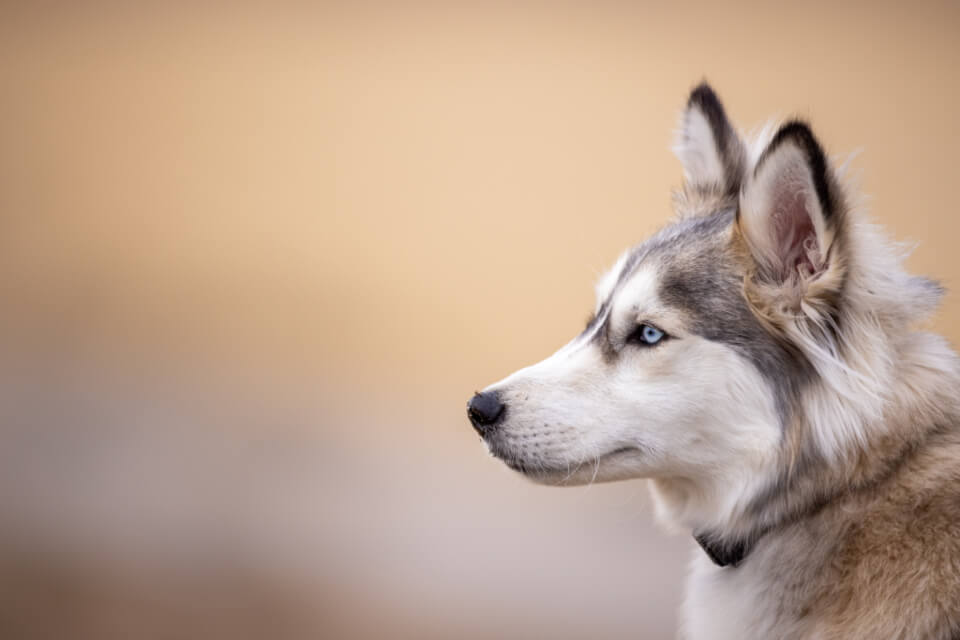
Huskies with Food Allergies or Sensitivities
Some Huskies may experience food allergies or sensitivities, leading to symptoms like itchy skin, digestive issues, or ear infections. Identifying allergies involves observing your Husky for signs of discomfort or changes in their health after eating certain foods. Common allergens include beef, chicken, grains, and dairy.
To manage food allergies, choosing hypoallergenic foods is essential. Hypoallergenic dog foods are specifically made to lessen the risk of allergic reactions. Look for brands that use novel proteins (like duck or venison) and easily digestible carbohydrates (like sweet potatoes). Limited-ingredient diets are also helpful in pinpointing and avoiding specific allergens.
Adjusting Diet for Huskies with Specific Health Conditions
Huskies with specific health conditions may need dietary modifications to support their health. Here’s how to adjust their diet for common conditions:
- Obesity: If your Husky is overweight, reduce its calorie intake and increase its exercise. Choose low-calorie or weight-management dog foods high in fiber to help it feel full. Avoid giving it high-calorie treats, and monitor its portions carefully.
- Diabetes: Huskies with diabetes need a diet low in simple carbs and high in fiber to manage blood sugar levels. Look for foods specifically formulated for diabetic dogs that provide consistent energy and support stable glucose levels. Regular monitoring and working with your vet are key to managing diabetes effectively.
Puppies vs. Adult Huskies: Dietary Differences
Nutritional Needs for Different Life Stages
- Puppies: Husky puppies require a diet that supports their rapid growth and development. Their diet should have more protein and fat to meet their increased calorie requirements and muscular growth. Puppy foods often have additional nutrients like DHA for brain development.
- Adults: Adult Huskies need a balanced diet that maintains their weight and supports their energy levels. They require fewer calories than puppies but still need sufficient protein, fats, and vitamins to stay healthy and active.
- Seniors: Older Huskies may need to adjust their diets to address reduced activity levels and potential health issues like arthritis. Senior dog foods often have lower calories and added joint-supporting supplements like glucosamine.
Monitoring Weight and Adjusting Portions
How to Assess Your Husky’s Weight and Adjust Their Diet Accordingly
Regularly monitoring your Husky’s weight is crucial to ensure they remain healthy. You can assess their weight by:
- Using a Scale: Weigh your Husky regularly and track changes. To determine your pet’s ideal weight, speak with your veterinarian.
- Body Condition Score: Check their body condition score by assessing their fat and muscle levels. You should be able to feel their ribs without excessive fat covering them.
Adjusting their diet involves:
- Portion Control: Adjust portions based on your Husky’s activity level, weight goals, and dietary changes. Follow feeding guidelines on food packaging, but be ready to modify them based on your Husky’s specific needs.
- Monitoring Changes: Observe how changes in their diet affect their weight and overall health. Regular check-ins with your vet can help fine-tune their diet and ensure they stay healthy.
By considering these special dietary needs and making appropriate adjustments, you can help your Husky stay healthy, comfortable, and thriving throughout their life.
Feeding Guidelines for Huskies
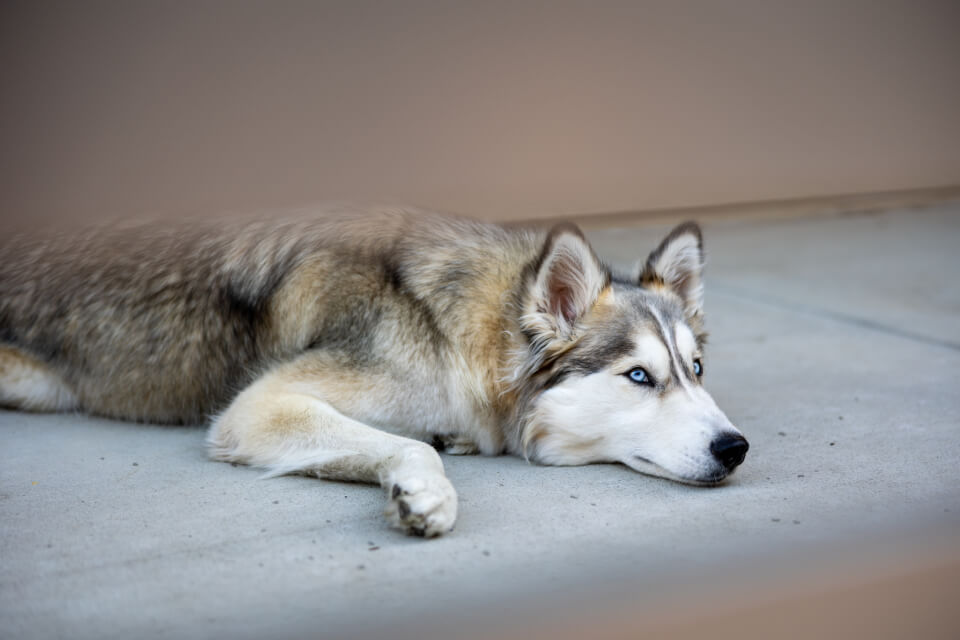
Portion Sizes and Feeding Frequency
Recommended Portions Based on Age, Weight, and Activity Level
Your Husky’s nutritional requirements are determined by age, weight, and activity level. Here’s a general guide to help determine appropriate portions:
- Puppies: Husky puppies need more food because they are growing rapidly. Feed them three to four times a day, observing the feeding guidelines printed on the packaging for dog food. Portions should be adjusted as they grow and their needs change.
- Adult Huskies: Divide your adult Huskies’ daily food intake into two meals. The amount depends on their weight and activity level. Typically, active Huskies require more food than less active ones. Follow the recommended portion sizes on the dog food packaging, but adjust based on your Husky’s body condition and energy levels.
- Senior Huskies: Older Huskies may need fewer calories to maintain a healthy weight. Feed them two meals daily and choose a senior formula if your vet recommends it. Monitor their weight and adjust portions to prevent obesity.
Understanding Dog Food Labels
How to Read and Interpret Labels for Better Choices
Dog food labels provide important information about the product’s nutritional content. Here’s how to read and interpret them:
- Ingredients List: Look for high-quality protein sources like Fish, beef, or chicken, which should be the main element. Avoid foods with vague terms like “meat by-products” or “animal digest.”
- Guaranteed Analysis: This section shows the highest percentages of fiber and hydration and the lowest fat and protein levels. By comparing these values to their dietary requirements, ensure the food meets your Husky’s nutritional needs.
- Nutritional Adequacy Statement: Check if the food fulfills the specifications set forth by the Association of American Feed Control Officials (AAFCO). This indicates the food provides complete and balanced nutrition.
- Feeding Guidelines: Follow the recommended amounts based on your Husky’s weight and life stage. Adjust portions if necessary based on their body condition and activity level.
Supplements and Treats
Recommended Supplements and Appropriate Treat Options
You can use supplements to address gaps in your Husky’s diet and support their overall health. Here are some common supplements:
- Omega Fatty Acids: Flaxseed or fish oil supplements offer the health benefits of Omega-3 and Omega-6 fatty acids, coat health, and reduce inflammation.
- Joint Support: Glucosamine and chondroitin supplements can help maintain joint health, especially in older Huskies or those with joint issues.
- Multivitamins: A general dog multivitamin can help ensure your Husky gets a balanced mix of essential vitamins and minerals.
For treats, choose options that are healthy and low in calories. Consider treats with natural ingredients and minimal additives. Some good choices include:
- Vegetable-based treats: Carrot sticks or sweet potato chews are nutritious and low-calorie options.
- Training treats: Small, low-calorie treats are ideal for training sessions and can be given frequently without overfeeding.
Following these feeding guidelines and making informed choices can help your Husky stay healthy, happy, and well-nourished.
Common Mistakes to Avoid
Overfeeding or Underfeeding
Consequences and How to Avoid Them
Overfeeding can result in obesity, raising the risk of the likelihood of conditions like diabetes, heart disease, and joint issues. It can also cause digestive problems and reduce your Husky’s overall quality of life. To avoid overfeeding:
- Follow Portion Guidelines: Stick to the feeding guidelines on your dog food package and adjust portions based on your Husky’s weight and activity level.
- Monitor Weight: Regularly check your Husky’s weight and body condition. If they are eating more or less, change what they are eating. Weight too quickly.
Underfeeding can lead to malnutrition, lack of energy, and poor coat condition. Your Husky may also experience growth issues if they are a puppy. To avoid underfeeding:
- Feed Adequate Portions: Ensure you provide enough food to satisfy their dietary requirements, considering their life stage, weight, and activity level.
- Monitor Health: Observe your Husky for poor coat condition, lethargy, or weight loss, and adjust their diet accordingly.
Feeding Inappropriate Human Foods
Some foods for humans might be poisonous or damaging to Huskies. Avoid feeding them the following:
- Chocolate: includes theobromine, a potentially hazardous substance. cause vomiting, diarrhea, and even seizures.
- Onions and Garlic can harm erythrocytes and lead to anemia.
- Grapes and Raisins can lead to canine renal failure.
- Avocado contains persin, which has been linked to diarrhea and vomiting.
- Alcohol: Even small amounts can be extremely harmful, causing vomiting, diarrhea, and central nervous system issues.
Stick to dog-safe treats and foods to ensure your Husky stays healthy and avoids potential poisoning.
Not Adjusting Diet for Activity Levels
Importance of Matching Diet with Exercise Levels
Huskies have varying energy needs depending on their activity level. Failing to adjust their diet according to their exercise can lead to health issues:
- Active Huskies: Those who exercise frequently or participate in high-intensity activities need more calories and protein to sustain their energy levels. Provide a diet higher in protein and fats to meet these needs.
- Less Active or Older Huskies: Huskies with lower activity levels or older Huskies who are less active require fewer calories. Overeating may result in weight gain and related health issues. Adjust their diet to be lower in calories and monitor their weight regularly.
By avoiding these common mistakes and tailoring your Husky’s diet to their specific needs, you can help ensure they remain healthy, happy, and well-nourished.
Conclusion
Summary of Key Points
To keep your Husky healthy:
- Ensure you eat a well-balanced diet of nutritious fats, high-quality proteins, and vital elements.
- Choose appropriate food options, such as reputable brands or tailored diets, and adjust based on special needs, age, and activity levels.
- Avoid common mistakes like overfeeding and feeding harmful human foods.
Encouragement to Consult with a Veterinarian
For the best results, consult your veterinarian for personalized dietary advice. They can assist in developing a meal plan that satisfies your Husky’s needs, ensuring they stay healthy and happy.
FAQs on What Should I Feed My Husky?
-
What is the best food for Huskies?
The best food for Huskies includes high-quality brands with real meat as the first ingredient, such as Blue Buffalo, Wellness Core, or Royal Canin.
-
How much should I feed my Husky daily?
Daily food portions depend on your Husky’s age, weight, and activity level; typically, adult Huskies need about 2 to 3 cups of high-quality kibble divided into two meals.
-
Can I feed my Husky homemade food?
Yes, you can feed your Husky homemade food, but ensure it is nutritionally balanced and consult your vet to meet all dietary needs.
YOU MAY ALSO LIKE:
Corgi Feeding Guide
What to Feed a Diabetic Dog
Tips for Dogs with Sensitive Stomachs
Boxers Allergies and Skin Allergy Guide
Is Iams a Good Dog Food
Can Adult Dogs Eat Puppy Food
What is Chicken Meal in Dog Food
What is The Best Meat for Dog Food
Is Blue Buffalo Good Dog Food
Complete Guide to How Much Fresh Food to Feed a Dog
How Much Food for 60 lb Dog
How much Cesar Dog Food to Feed
How good is blue buffalo dog food
How Expensive is Farmer’s Dog Food
How Long is Canned Dog Food Good for After Opened
How Long Does a Bag of Dog Food Last
How Much Does Sundays Dog Food Cost
How to choose the best dog food for Huskies
How Much Does Cup of Dog Food Weigh
How to Treat Dog Food Poisoning at Home
How Much is Sunday’s Dog Food?
How Much is Ollie Dog Food in a Month?
How to Choose Dog Food
How Much Pumpkin to Add to Dog Food
How Much Does Farmers Dog Food Cost?
How Long Can Wet Dog Food Sit Out?
How to Soften Dog Food
How to Keep Dogs Out of Cat Food
How to Give Dog Pills Without Food
How to Get my Dog to Eat Dry Food
How to Keep Ants Out of Dog Food
How Much Does Dog Food Cost
How Long to Soak Dog Food
How Much Homemade Dog Food to Feed
How Much Wet Food to Feed a Dog
How to Transition Dog Food
How to Stop Food Aggression in Dogs Towards Other Dogs
How many cups of food should I feed my dog?
How to Stop Food Aggression in Dogs
How Many Cups in a Pound of Dog Food
How Long Does it Take a Dog to Digest Food
Why is My Dog Always Hungry
How Much Protein is in Dog Food?
How to Make Dog Food
how long to feed dog puppy food
What is The Cost to Make Homemade Dog Food?
How to Make Homemade Raw Dog Food
How to Make Homemade Dry Dog Food
How to Prepare Dog Food at Home for Senior Dogs
How to Train a Dog That is Not Food-Motivated

